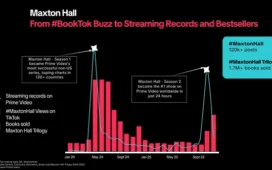New Yorkers may soon decide whether a local Council member should be able to kill a rezoning.
The city’s Charter Revision Commission on Tuesday released draft questions to pose to New York voters in November, asking whether the city charter should be changed to speed up housing development and weaken the City Council’s leverage over zoning changes.
The commission is pitching five questions, four of which are related to land use and one that would move local elections to coincide with presidential elections to increase turnout. If approved, these measures could seriously deflate City Council’s power over major land-use changes. Here’s a rundown of the four housing and land-focused questions and their likely impact on future developments.
Deference demise
One proposed amendment to the city charter takes aim at the City Council’s tradition of voting on land use actions based on the wishes of the local Council member, commonly referred to as member deference. The proposal would create a land use appeals board, which would replace the mayor’s ability to veto City Council decisions on actions that go through the city’s months-long land use review process known as the Uniform Land Use Review Procedure, or ULURP.
The board would consist of the mayor, applicable borough president and City Council speaker. In order to reverse a land use decision by the City Council, at least two of the three officials must agree. The ability to undo City Council decisions would only apply to land use actions that affect one borough, so it wouldn’t be an option for citywide zoning changes (such as the City of Yes for Housing Opportunity, which was approved last year).
The board’s powers would also be limited to appealing City Council decisions, so the body can’t make additional changes to a land use application. The board would, however, be able to reverse modifications to a land use application made by the City Council, and such changes would then need to be reviewed by the City Planning Commission.
The mayor’s veto power is rarely used, and rezonings are often abandoned before a final City Council vote if they aren’t guaranteed approval. Developers often pull their applications if the local Council member signals their disapproval, and some do not bother filing plans if it is clear a Council member is likely to block their project. In the past decade, at least 45 applications that began public review were abandoned. An appeals board could change that dynamic if a developer is confident in support from the borough president and mayor early on.
“This change would strike a better balance between local input and citywide needs, and provide a pathway for land use changes in parts of the city where the practice known as ‘member deference’ has functionally shut off housing development today,” a press release from the commission stated.
The change would also beef up the role of borough presidents, who currently have an advisory role in the city’s land use process.
“We’re restoring to them a more fulsome role in the land use process that we think will be healthy,” Alec Schierenbeck, executive director of the Charter Revision Commission, said in an interview. “But we’re keeping, fundamentally, the roles of the City Planning Commission and City Council.”
City Council Speaker Adrienne Adams has pushed back against the idea that City Council is to blame for holding up housing construction. After the mayor halted plans to build housing at the Elizabeth Street Garden, Adams referred to the Charter Revision Commission as “the height of hypocrisy and a sham for ignoring the role mayoral administrations play in obstructing new housing for New Yorkers.”
First Deputy Mayor Randy Mastro said plans for the Elizabeth Street Garden were abandoned in exchange for local Council member Chris Marte’s support of three other projects. With an appeals board in place, that tradeoff may not have been necessary — meaning that three projects — and 123 units at the garden — could have moved forward.
New “fast tracks”
Under other proposals, some housing projects would be able to skip City Council or City Planning Commission review entirely.
One proposed charter revision would introduce a builder’s remedy-type option for housing projects in certain parts of the city, which wouldn’t take effect until 2027.
The proposed change would create an affordable housing fast track for housing projects in community districts that haven’t been pulling their weight. Such projects must be subject to the city’s Mandatory Inclusionary Housing program’s affordability requirements and located in the 12 community districts with the lowest rates of affordable housing construction over a five-year period.
Those projects would go through a condensed ULURP, bypassing final City Council review. A borough president’s review would occur during the same 60 days that community boards consider a land use action. The City Planning Commission would then have 30 days (down from 60) to consider and hold a final vote on the proposal. The Commission must also find that a proposal is “adequately supported by transit, sewer, and other infrastructure” before approving.
The fast-track adds some teeth to the Fair Housing Framework, which was approved by the City Council in 2023. The framework set five-year housing production targets for each of the city’s 59 community districts, without repercussions for those who failed to meet them.
The commission is also proposing allowing publicly funded affordable housing projects to get zoning waivers from the Board of Standards and Appeals through a “fast track zoning action” process. Only Housing Development Fund Companies — the vehicle used by most publicly-financed, 100 percent affordable housing projects — would be eligible.
Enter: ELURP
Another proposal would introduce a new land use acronym: ELURP, which stands for Expedited Land Use Review Procedure.
The process would speed up ULURP for certain projects by having a borough president review applications during the same 60-day period that community boards consider a land-use action. The City Planning Commission would then have 30 days to consider, hold a hearing and vote on a proposal — if the action doesn’t require City Council approval, that vote is final. In cases where a proposal requires City Council approval, City Planning’s review period would be replaced by a 30-day review by the Council.
Schierenbeck said ULURP works well for larger projects but is “fundamentally broken” for more modest zoning changes and small housing projects. The commission estimates that ELURP would halve public review times.
This speedier review would apply to projects in medium- or high-density districts that increase residential capacity by no more than 30 percent or to housing projects in low-density districts that are no taller than 45 feet. ELURP would also apply when the city buys or sells land for 100 percent affordable projects — such deals must undergo public review. Some infrastructure and climate resiliency projects would also be eligible.
City Map 2.0
The final land-use-related proposal would drag the city into the 21st century by consolidating and digitizing the City Map. The City Map is the official street map of the city, and each borough has its own set, consisting of more than 8,000 individual paper maps.
The proposal would unify and digitize these maps, saving applicants trips to the Borough President’s Topographical Offices. A report by the Charter Revision Commission noted that the anachronistic system has made city map changes “perhaps the most feared ULURP actions among private applicants.”
The 13-member commission must still finalize the language of the questions that appear on the November ballot. That vote is expected to happen this month.
Read more

Charter Commission floats builder’s remedy, development fast track

City abandons Elizabeth Street Garden plans

The NYC panel that could change everything








Recent Comments